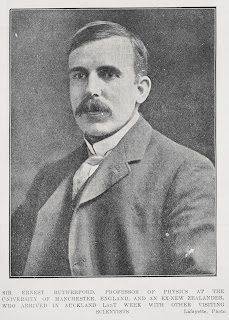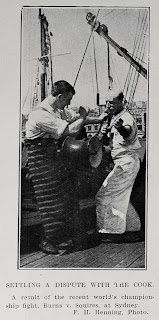Sir Ernest Rutherford

It was sixty-six years ago this month that Nobel prize winner Ernest (Ern) Rutherford (1871-1937), the "father of nucelar physics" passed away. He was interred in Westminster Abbey, surrounded by the ashes of scientists such as Sir Isaac Newton. Rutherford was 66 when he died. Following his death an obituary in the New York Times said, "It is given to but few men to achieve immortality, still less to achieve Olympian rank, during their own lifetime. Lord Rutherford achieved both.” Despite his intellectual achievements, Rutherford, or Ern as he was called, was said to be a humble man. Physically, he was large, and quite the talker. He had a tendency to spill his tea on his waistcoat, to which wife, Mary, would proclaim, “Ern, you’re dribbling.” Mary had marched with the suffragettes in London and not surprisingly, Ern was a huge supporter of women studying the sciences. His very first research assistant, Harriet Brookes, assisted him in the discovery of rado...



.png)


